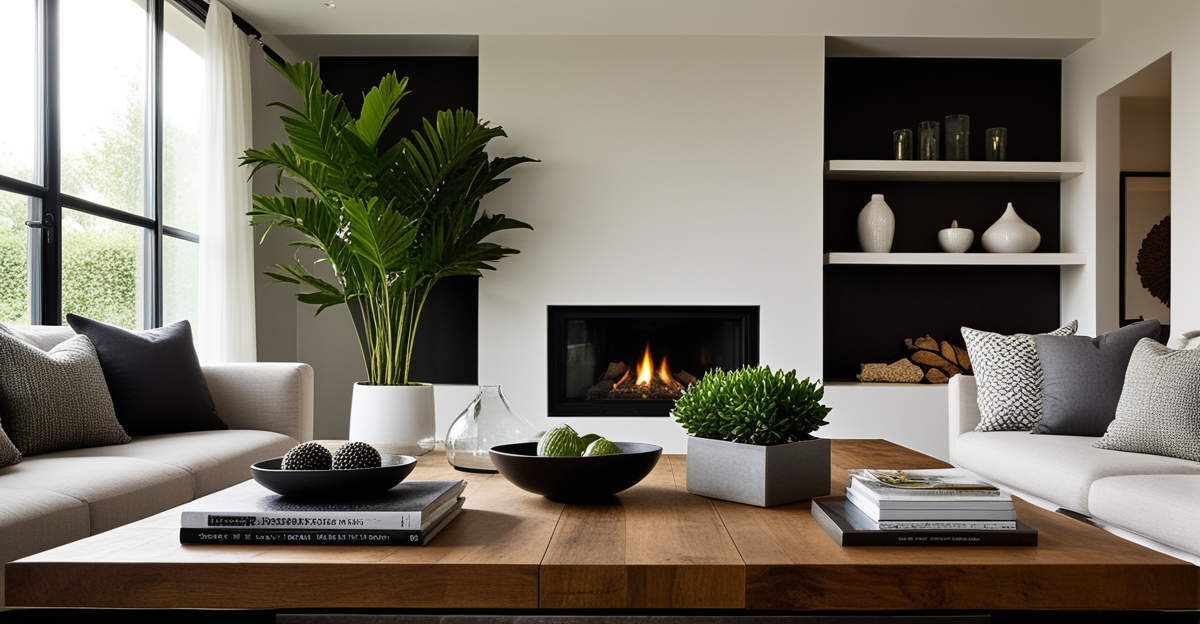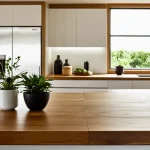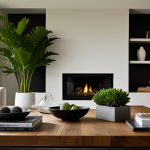The Impact of Home Decor on Emotional Well-Being
Home decor and mental health are closely intertwined, as the design of a living space can significantly influence one’s mood and general emotional state. One of the most powerful tools in shaping emotional responses is the choice of color schemes. Colors like soft blues and greens often promote calmness and relaxation, while vibrant reds and yellows can energize and stimulate. This psychological effect of color schemes in living spaces is supported by extensive research demonstrating how hues affect brain activity and hormonal balance.
Lighting, both natural and artificial, plays a critical role in daily mood regulation. Ample natural light exposure boosts serotonin levels, enhancing feelings of happiness and alertness. Conversely, inadequate lighting or harsh artificial light can contribute to feelings of fatigue and irritability. Thoughtful placement of windows and the use of warm-toned bulbs can create an uplifting atmosphere that supports emotional well-being across all seasons.
Have you seen this : How Can You Make Your UK Home Feel More Spacious?
Furniture choice and layout further cement these mood influences. For example, arranging furniture to encourage sociability and openness can reduce feelings of isolation, whereas cluttered or cramped setups may lead to increased stress. Selecting pieces that are comfortable and visually pleasing supports a sense of calm, making spaces feel more welcoming and balanced. The emotional benefits of decor become evident when living areas feel both functional and nurturing, directly enhancing mental health through environmental design.
Physical Comfort and Productivity through Thoughtful Decor
Physical comfort in home decor plays a crucial role in enhancing well-being and productivity. Ergonomic furniture is designed to reduce physical stress by supporting natural body posture, which minimizes discomfort and fatigue. For example, ergonomic chairs with adjustable height and lumbar support help maintain proper spinal alignment during prolonged sitting, directly benefiting both mental health and physical ease. This connection between comfort in home decor and reduced physical strain encourages sustained focus and reduces stress.
Have you seen this : How Can You Integrate Sustainable Practices into Your Home Decor?
Well-organised and decluttered spaces contribute significantly to productive spaces at home. Clutter can overwhelm the senses, leading to distraction and decreased concentration. Creating tidy environments helps the mind feel more at ease, allowing individuals to better manage tasks and maintain motivation. Ergonomic furniture paired with orderly surroundings fosters an effective atmosphere for work or study, blending comfort and functionality.
Texture and fabric selection also impact sensory comfort, further enhancing relaxation. Soft, natural materials like cotton or wool create a soothing tactile experience, calming the nervous system and encouraging restfulness. Incorporating these elements through cushions, throws, and upholstery enriches the sensory dimension of comfort in home decor. Altogether, thoughtful attention to ergonomic furniture, decluttered spaces, and sensory-friendly fabrics promotes both physical well-being and mental clarity at home.
Scientific and Expert Insights on Decor and Quality of Life
Research from scientific studies on home environments consistently shows that thoughtfully designed interiors offer measurable health benefits. For instance, exposure to natural light and calming color schemes can lower cortisol levels, reducing stress. Studies reveal that balanced lighting and ergonomic furniture not only enhance physical comfort but also elevate mental health by promoting relaxation and focus. These findings underscore the connection between environmental factors and emotional resilience.
Expert opinions on decor emphasize creating harmonious spaces that align with individual needs. Interior designers advocate for integrating natural elements such as plants and natural materials, which have been linked to improved air quality and lowering anxiety. They also stress the importance of optimising furniture arrangement to facilitate ease of movement and social interaction, thereby supporting mental well-being.
Evidence-based links further demonstrate that home environments influence stress reduction. Environments designed with attention to sensory comfort—through textures, colors, and lighting—contribute to a calming atmosphere that supports psychological recovery and lowers fatigue. This synergy of design elements confirms that health benefits of thoughtful interiors extend beyond aesthetics, profoundly impacting overall quality of life.
Enhancing Daily Living with Practical Decorating Choices
Small, practical home decorating tips can dramatically improve lifestyle and emotional well-being. For instance, incorporating plants into living areas not only enhances aesthetics but also supports air quality, indirectly benefiting mental health. Adjusting window treatments to maximize natural light exposure throughout the day creates a brighter, more inviting atmosphere, lifting mood with minimal effort. Such thoughtful tweaks reflect how lifestyle improvement with decor often begins with easy-to-implement, yet impactful, changes.
Personalisation of space plays a pivotal role in designing a home that truly resonates with its inhabitants. Displaying meaningful objects, artwork, or photographs allows individuals to express their identity and values, fostering a deeper emotional connection to their environment. This sense of ownership enhances comfort and promotes emotional stability, directly linking home decor and mental health. Personalised spaces often encourage relaxation and a feeling of safety, essential components for psychological well-being.
Creating multi-functional spaces addresses evolving daily needs, especially important in modern homes where areas serve multiple purposes. Clever use of modular furniture, like fold-away desks or convertible sofas, supports productivity and leisure without overcrowding. Designing rooms to adapt flexibly also reduces stress caused by clutter and disorganisation, enhancing overall quality of life. Thoughtful allocation of space empowers users to shift seamlessly between work, rest, and socialising, demonstrating the practical benefits of well-planned decor.




